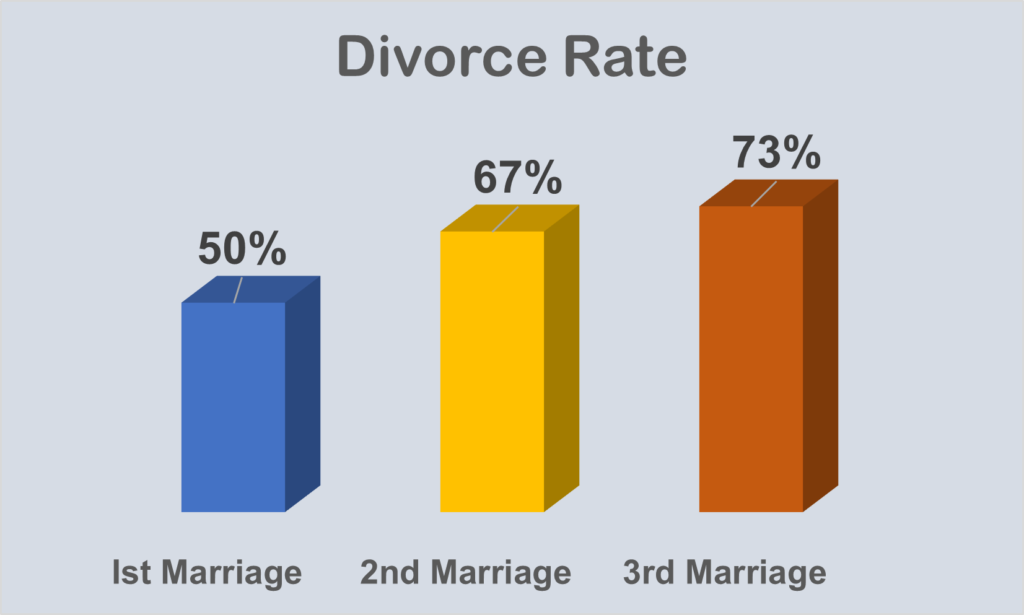DIVORCE RATE AMONG PROJECT MANAGERS PART 2: RED FLAGS

In the first part of this series, I said I would elaborate on some aspects of the statistics to provide context. Today, I want to highlight some red flags that may point to a much higher divorce rate among project managers and professionals.

Although these divorce rates are pretty high and represent the general population, I have reasons to belief that they could be much higher for project managers and project professionals.
The first reason is the nature of project management, especially engineering and construction project management. As already stated in the previous piece, the report acknowledged that construction involves a demanding work environment with considerable potential to interfere with family life in terms of time, strain and behavior.
However, Nini Xia, Rui Zhong, Xueqing Wang, and Robert Tiong were more specific when they said that working in projects which are characterized by long working hours, inflexible schedule, and complex tasks, project managers are particularly likely to experience high levels of work-family conflict.
For those reasons project managers and professionals spend long periods away from home, placing a lot of strain on their relationships with their spouses. This often leads to infidelity. According to Forbes report, “infidelity was the most common issue that ultimately prompted divorce”.
For example, I have heard of so many cases of infidelity and accusations of infidelity among some of my colleagues in various project teams. I will never forget the case involving a colleague with whom I shared office. His wife, someone I did not know and have never met, called me from another continent to verify the information that her husband was living with another woman. As they say in Nigeria, “see me, see trouble”! I still do not know how she got to know that I shared office with her husband, and how she got my phone number.
Well, leaving spouses at home and cheating with someone else in faraway project locations is not uncommon in the oil industry. Some even treat this as adventure with local women.
While some of these cases of infidelity involved pairing with colleagues at work, others involved people outside the project team or work environment.
The second reason why divorce rate is likely to be higher among project managers and professionals is the challenge of communication in a multicultural environment. I would have thought that project managers, by their training, are already equipped to manage their cross-cultural relationships.
But that may not be the case because one often hears couples whose marriages are going through turbulent times blame it all on cultural differences. I concede that cultural differences bring another dimension to the challenges of marriage just as it does in the work environment. But if we can manage it at work, why does it lead to divorce at home?
Besides, I know many couples, professionals, in such excellent cross-cultural marriages that would make one green with envy. In fact, I have arranged to hold live virtual interviews with some of these couples to learn how they have been able to manage their cultural diversity.
Here are details of the first session.

Click here to book your seat.
The third reason why I think that the divorce rate among project managers and professionals may be higher than reported is lack of commitment. I will explain.
Grappling with the challenges of project work, especially if the project is facing challenges and managing the demands of a committed relationship can be exhausting to say the least. It is even worse when the relationship is making a lot of demands on your emotional capital. Some simply drop the ball.
That is how we destroy our relationships in ignorance. Here is an example. In those days, before internet and mobile phone became common, I had a British project manager leading a project team in the Gulf of Guinea. His wife was in the UK while he worked in Nigeria. Probably, in a bid to impress upon me as a young engineer to place my job above everything else, he told me how he had not even opened, much less read and reply to, the letter he had received from his wife some days back (I can’t remember exactly how long).
I wonder if he would still have had a job if he treated his job the way he treated his family.
And what about you?
“Would you still have a job if your treated it the way you treat your family?”
How do we maintain a healthy relationship with our spouses to go back to when the project work is all done?
Here are a few suggestions:
Determine your values:
You must decide what is really important to you. Let me just repeat what I said in the first piece. This is the values decision that John Maxwell, globally acclaimed leadership expert, made: “I wanted to be successful, but I didn’t want to lose my family in the process. Anyone who neglects or abandons his family for fame, status or financial gain isn’t really successful.”
You can be successful both at work and at home.
Be intentional in building your relationship:
Create time for your spouse or family; call, arrange for her to visit your project location if you are going to be away for a very long time. Yes, it will cost you money!
Value your commitment to your spouse and show it:
You have taken a portion of someone else’s life in this relationship. Respect it.
The report showed that lack of commitment was one of the most reported reasons for divorce.
Guard your heart:
Do not intentionally put yourself in harm’s way by lack of discretion in your involvement with colleagues. Have your boundaries.
Mind your friendship:
Forbes report showed that having friends who are divorced increases your risk of divorce. Couples who have friends who divorce have a 75% increase in the risk of their own marriage ending.
Don’t forget to sign up for the interview.


